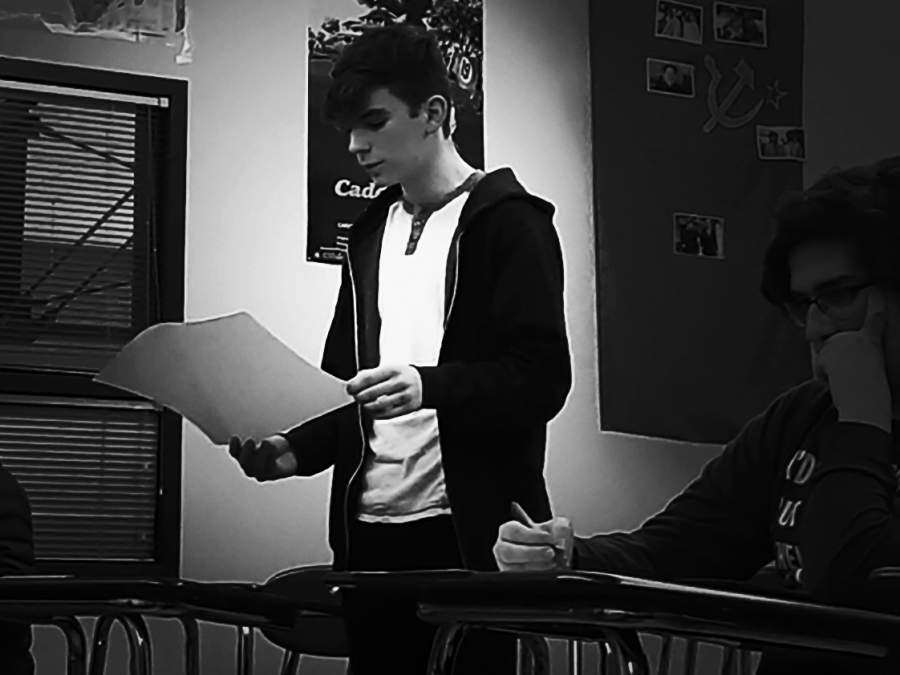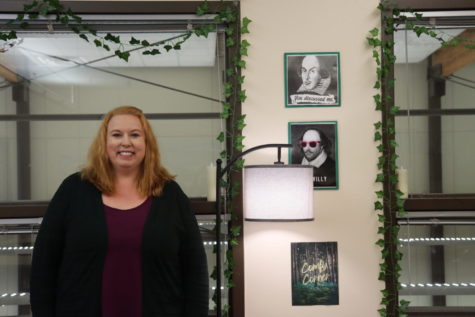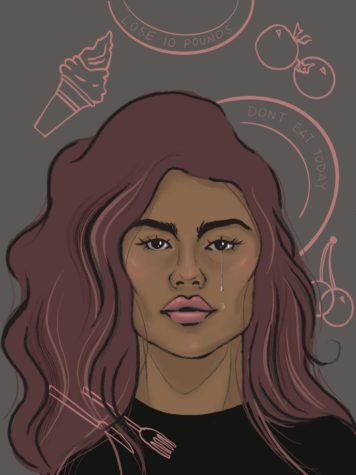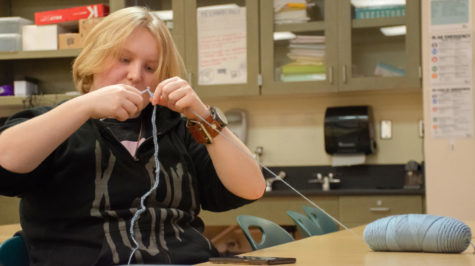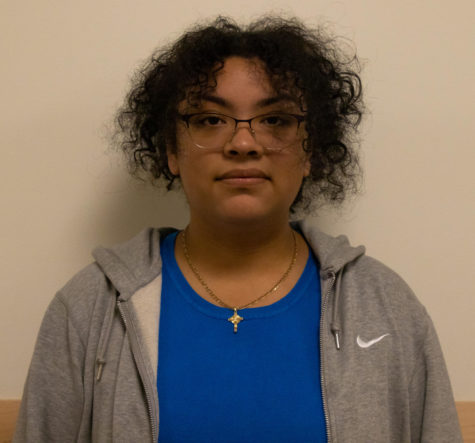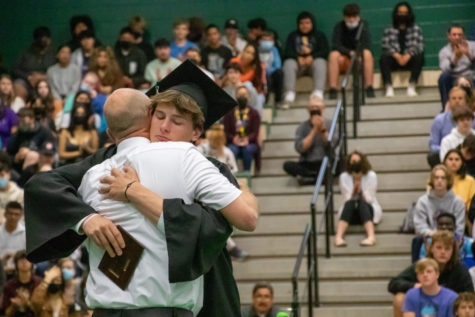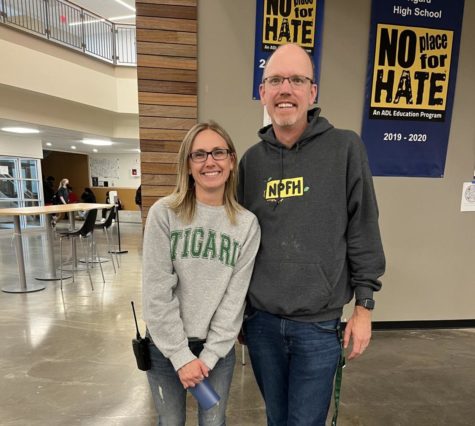Coachless speech and debate
Once an award-winning team, speech and debate struggles to stay afloat after five years and five coaches
Freshman Gavin McLeod practices for an upcoming speech and debate tournament. The team has had five coaches in the past five years.
February 5, 2020
Tigard’s speech and debate team is picking up the pieces and working to get the team back on track for next year after facing complications due to a lack of an adult coach at the beginning of the year.
The school does not formally allow any clubs to operate without an adult advisor, but it took months until one was in place. Senior Quin Eisenhauer served as this year’s team operations manager for the first couple months in place of an adult coach.
“The simple issue is that speech and debate starts in the fall, so those first two months of not even being allowed to meet [without a coach] to talk with one another and to figure out what we’re doing […] is completely destructive,” Eisenhauer said.
The reason it took so long to find a coach for the team lies partly in the school’s hiring process for new coaches. When looking for a team coach or advisor for any club, the school will always prioritize hiring internal resources first. This means the job offer is posted exclusively for current teachers and staff; the school waits two months minimum before making an attempt to hire external resources.
Eisenhauer’s parents have volunteered for the speech and debate team (judging at tournaments and driving team members to the schools where the tournaments were held) for the past two years. Quin’s mother, Dawn Eisenhauer, immediately took the position when the job offer was opened up to external resources.
“In hindsight, I wish I would have just come in [earlier] as a volunteer,” Dawn said. By the time she was hired as an official paid coach, the team was two months into the season with no progress made.
They quickly realized that having a coach was only the first step to preparing for the season. Then came recruiting new members, raising funds, and getting the team reapproved by national speech and debate administrators so they would even be allowed to register for tournaments—a tedious process all on its own.
“There were about three [earlier] tournaments that we were planning to go to but, of course, due to timing we couldn’t get it done,” Quin said. With the limited window of time the team could meet on any given day, it took almost another month’s worth of work during after-school practices until the team was finally able to make it to their first tournament in December, three months after the season had began.
Having a new coach this year meant that most of the work to get things up and running again was put on the students. Moreover, this was not the first time the team had had to find a new coach. For the past four years the speech and debate team struggled to find a coach that stayed with them for more than a year.
Amber Manning used to be the team’s dedicated coach for several years before she went on to become a lawyer. It was during these years that the speech and debate team was recognized year after year as an award-winning team. From then on, however, the team coach position went to whoever was available.
“We’d watched the teachers [year after year] come in and burn out,” Dawn said. Simultaneously working as a teacher and a team coach for speech and debate is an intensive workload, which proved to be overwhelming for all the coaches following Manning.
“None of them had known anything about speech and debate before,” Quin said. “Their weekends were wiped out and […] it would burn them out and they would just leave.” Teaching a new coach of the ins and outs of speech and debate every single year was detrimental to the team’s ability to focus on what should have been the top priority—preparing for tournaments. The problem was further exacerbated this year because most of the team’s student leadership positions last year were filled with seniors who, come graduation, took all the knowledge of how to operate the team with them.
“Having a turnover person in large groups like this is a huge thing,” Dawn said. “But [now] these seniors are coming in and they’re trying to do something they’ve seen other people do but have not really been taught how to do.” With no coach and no higher-ups of any sort to direct them, the team lost the ability to communicate with each other over the summer and plan ahead for the school year.
All this stacked on top of funding (which has consistently been another pressing issue for the team) resulted in the team experiencing a noticeable downfall this year. But as much as it was a trial for the team, it was also a learning experience.
As far as what the school can do to support the team, it may be worth taking another look at the current hiring process for debate coaches. A hired debate coach position makes close to $5,000 a year—more than all class advisors make—so the issue isn’t pay. Rather, the two-month wait before hiring from external resources proves to be an issue when staff members choose not to take the position.
But for now, Eisenhauer sees this as a “sacrifice year” for the team. The team did manage to go to another tournament earlier in January, but so far that is the second tournament they have been able to attend all year. Eisenhauer admits that while the team will see little competitive success this year, the group’s focus has shifted to getting the team back on track so it can continue to exist.
“This was the first year the team was primarily student-run and we’ve gotten through the growing pains which leaves the door open and a framework for future years to follow,” debate coach Spencer Niessner said.
“If I’m being honest, I think this year isn’t going to get a whole lot better [for speech and debate],” Eisenhauer said. “But I think there’s a lot that’s [been] learned this year, and I think it is the duty of our [team’s] upperclassmen to help rebuild that system, because someone has to.”


